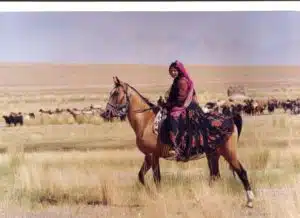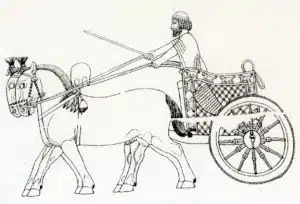The unofficial motto of the US Postal Service is:
“Neither snow nor rain nor heat nor gloom of night stays these couriers from the swift completion of their appointed rounds.”
This grand proclamation is engraved on the lintels of the Farley Postal Building in New York City which opened in 1914. The Classical Revival style building was designed by the firm McKim, Mead, and White but one of the architects on the project, William Mitchell Kendall, read Greek literature for pleasure and selected a quote from a book that he was reading that he modified for the inscription.
If you are following the US news lately, and I pray you are, the Post Office has been a center of lots of action as of late because of Donald Trump’s very clear attempts towards the disassembling of the Post Office with the help of the new Postmaster General, Louis DeJoy, a Trump donor with no experience with the Post Office and a noted hostility towards it. This in addition to Trump’s pronouncement that if the Post Office is funded and running well then they will deliver votes by mail and somehow cheat the election.
I’m not even going to get into the veracity of that (or lack thereof) but thinking about the Post Office these last few days brought me some reflections that seemed relevant in wonderings and thoughtful diversions shared here about culture, animals, and humans.
The original quote that the Post Office inscription is from derives from the ancient Greek writer and historian Herodotus in his book ‘Histories’ section 8.98 and was translated by George Herbert Palmer of Harvard:
τοὺς οὔτε νιφετός, οὐκ ὄμβρος, οὐ καῦμα, οὐ νὺξ ἔργει μὴ οὐ κατανύσαι τὸν προκείμενον αὐτῷ δρόμον τὴν ταχίστην.
“These neither snow, nor rain, nor heat, nor night prevent from accomplishing their appointed course with utmost dispatch.”
Herodotus wrote this about his observation of the Persian version of the Pony Express called Angarium. Here is the quote in context…
“Now there is nothing mortal which accomplishes a journey with more speed than these messengers, so skillfully has this been invented by the Persians: for they say that according to the number of days of which the entire journey consists, so many horses and men are set at intervals, each man and horse appointed for a day’s journey. These neither snow, nor rain, nor heat, nor night prevent from accomplishing their appointed course with utmost dispatch. The first then rides and delivers the message with which he is charged to the second, and the second to the third; and after that it goes through them handed from one to the other, as in the torch-race among the Hellenes, which they perform for Hephaestus. This kind of running of their horses the Persians call Angarium.”

The horse was domesticated in Persia, or modern day Iran, about 6000 years ago and even today some of the finest horse lineages are from Iran – Arabian and Caspian. The now extinct Nisean horse was enthroned as one of the great horses of the ancient world. The ancient Persian Empire called the Achaemenid Empire famously taught their children, according to both Herodotus and Strabo, “to ride the horse, draw the bow, and speak the truth.” Herodotus continued “the most disgraceful thing in the world [the Persians] think, is to tell a lie; the next worst, to owe a debt: because, among other reasons, the debtor is obliged to tell lies.”
To think that Persians never told a lie is hard to believe but to think that truth-telling was a deeply ensconced cultural virtue is easy to believe. The great unifying Persian king Darius the Great in many inscriptions wrote of his nation “We are a country of good men and a country of good horses. And we are good because of our horses. ” This is a remarkable statement. The main god of the Persians was Ahuramazda who for a very long time was not depicted as having an image but was depicted as being an empty chariot drawn by horses. If you didn’t know better you might even say that you could be forgiven for thinking that Ahuramazda was a horse and that the qualities of horses embodied so much of what the ancient Persians loved about the world.
The horse was integral to all burial ceremonies.Their bones, blood, actions, and entrails were part of hippomancy – using horses to foretell the future. Their sacrifice was regular to their gods as a favored offering. The Persian soul was bound up in horses.
It is hard to imagine now but there was a time where people ascribed their ancestry to the non-human realm. So many ancient peoples called and their modern ancestors still call themselves members of an animal clan – bear, deer, ant, buffalo, eagle, salmon – or plant clan – ash, oak, or cedar. Just to name a few. This isn’t uncommon in human history: that the origin of humanness isn’t human. For the Persians their understanding of being good people derived from being in proximity to and in relationship with horses. It is a remarkable understanding. And this understanding is a fine thread in our understanding of the value of the Postal Service today because the Angarium was adopted all over the western world to deliver mail. And that delivery sat on the goodness of horses and the goodness of Persians to be in relationship with those creatures.
Here at Primal Derma these kinds of stories and histories are intrinsic to our mission. That the animal world informs our way of being in the world. The ancient Persians loved horses. And they killed horses. And they enshrined them. And they derived their goodness as people from them. Might it be that we could do the same for cows? Knowing all that we know about them, could it be? I don’t know but I’m trying to honor these animals by walking this old trail and telling these old stories. These might just be the kind of stories that are needed in a time like this.
Thanks so much for your ongoing orders and support of Primal Derma. I’m so grateful.
If this newsletter, or any of them, brings up comments or questions – please send them. I’m happy to receive them and respond in tow.
Talk soon enough,
Matt
—





